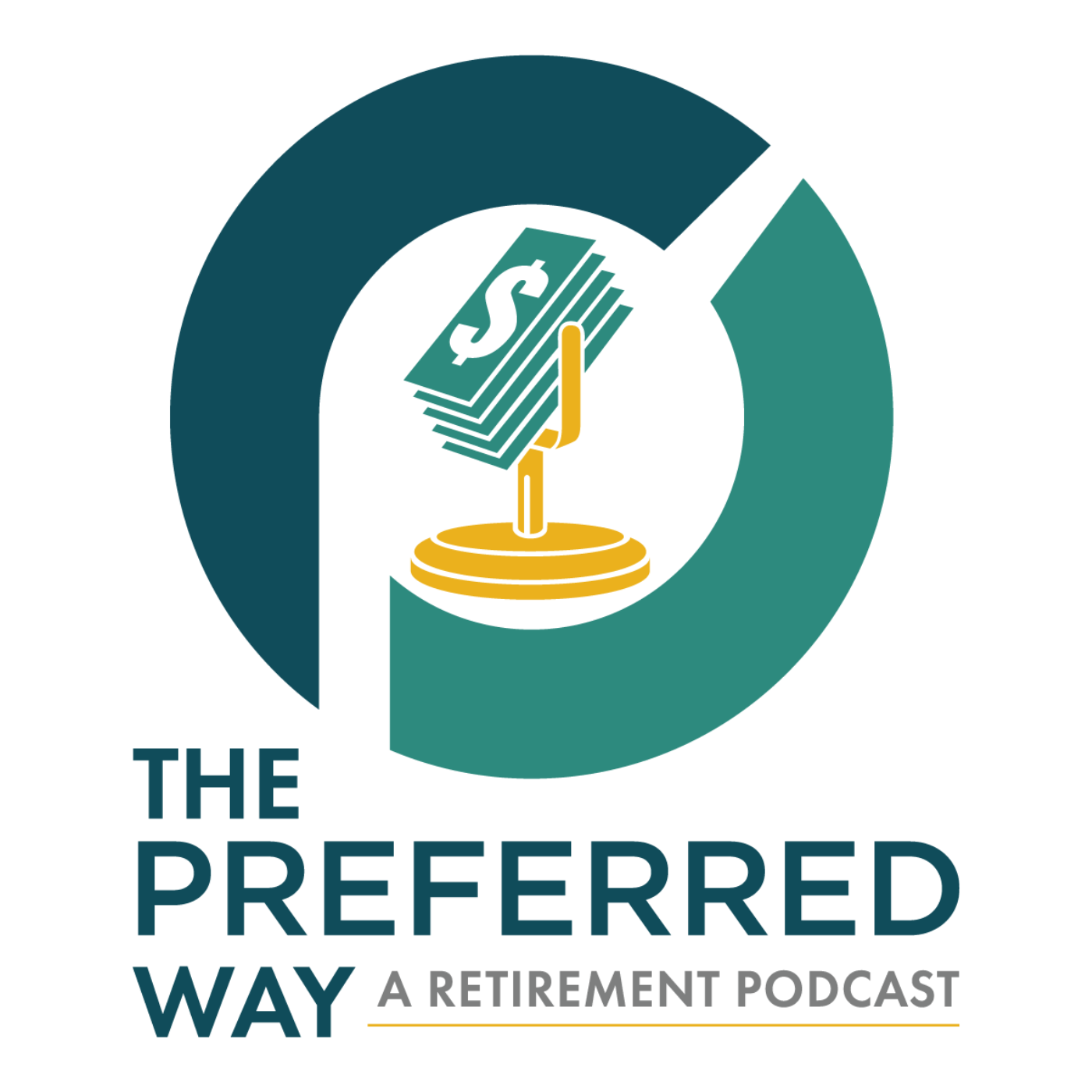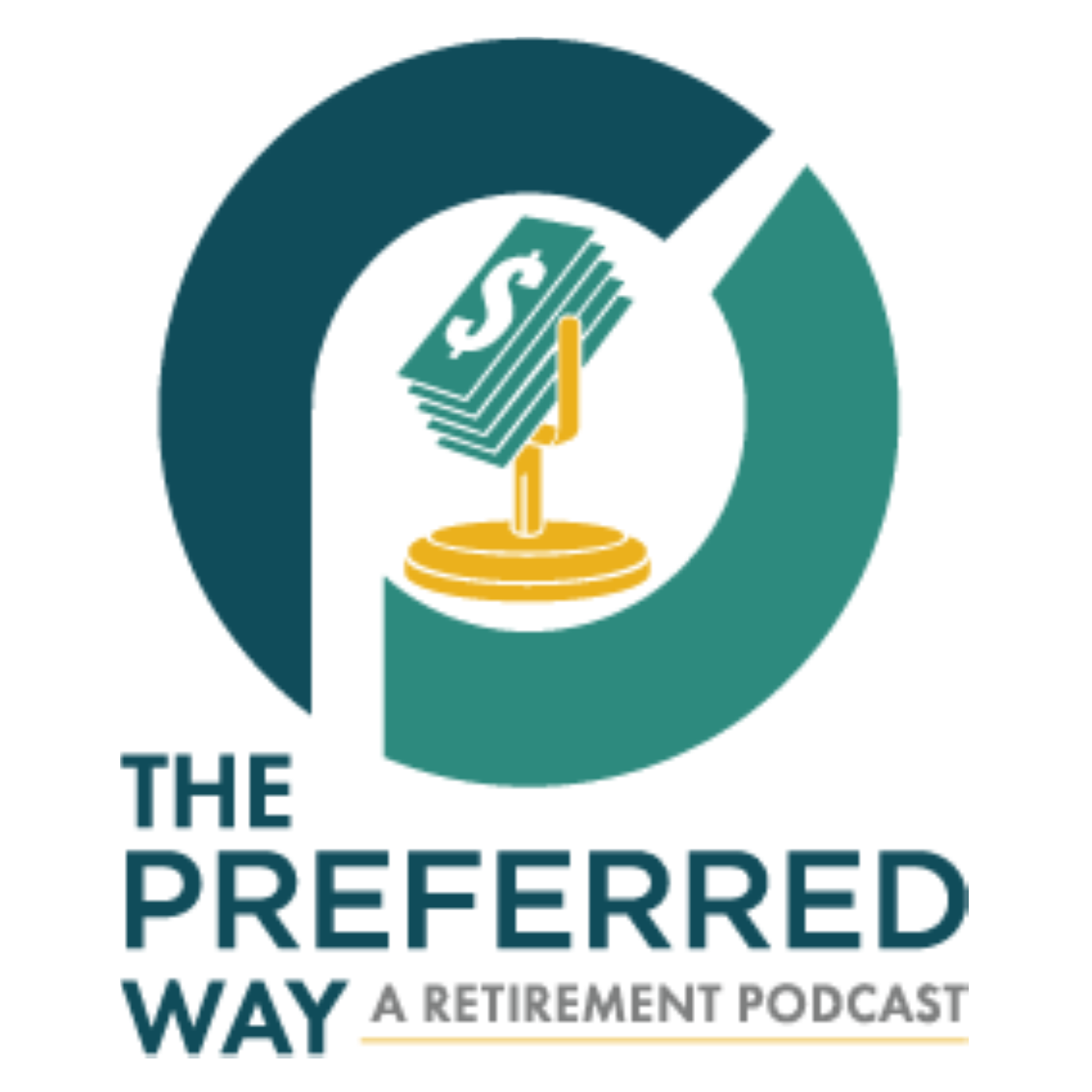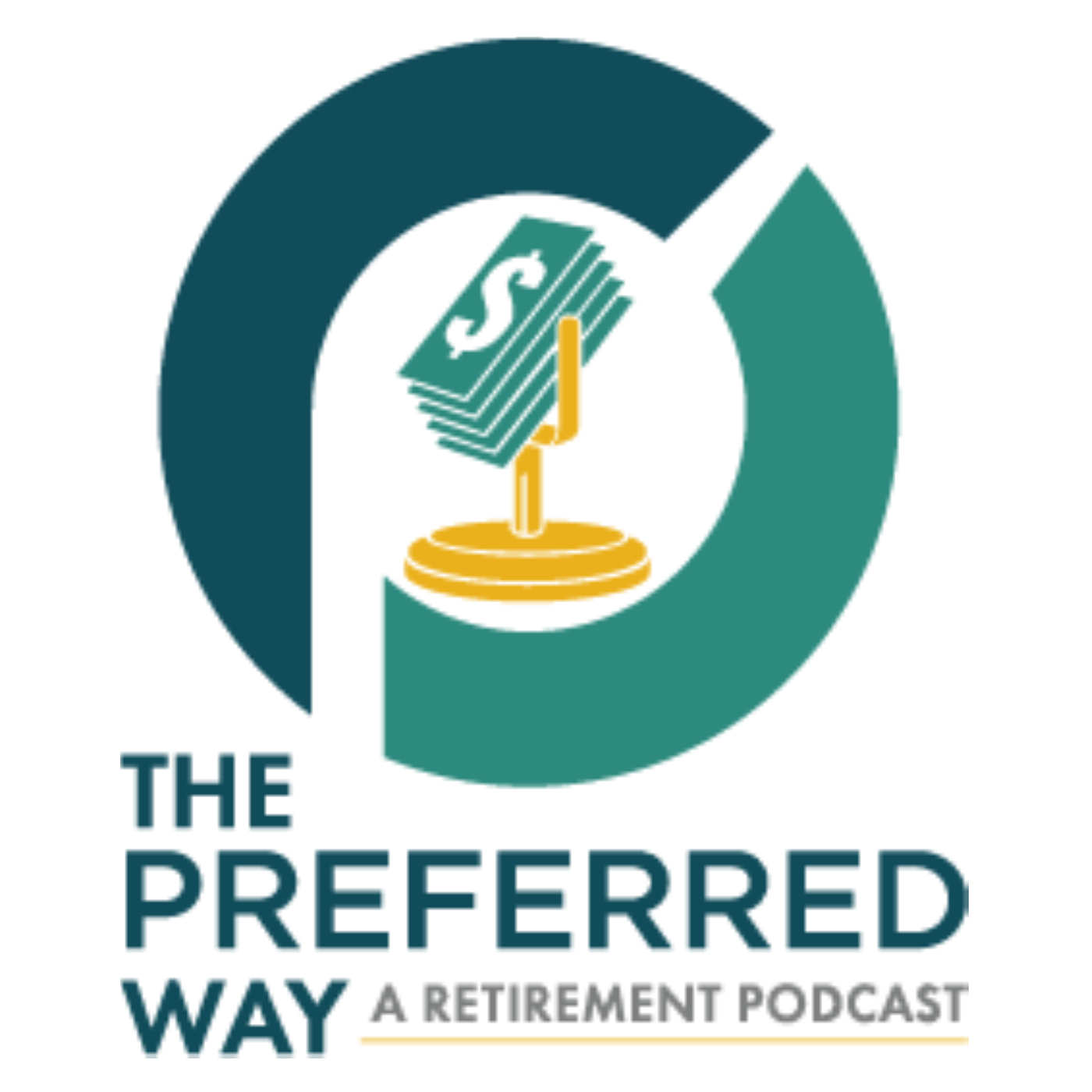[00:00:00] Speaker A: You're listening to the preferred way, a retirement podcast brought to you by preferred trust company, the preferred custodian for all alternative investments.
[00:00:09] Speaker B: Welcome to our podcast. Thanks for joining us today. I have Kerry Cook here with me, CEO of Preferred Trust, and we are going to talk about alternatives versus traditional investments today. Hey, Carrie.
[00:00:22] Speaker C: Hi.
[00:00:23] Speaker B: Thanks for joining me today.
[00:00:24] Speaker C: I mean, did I really have a choice?
[00:00:27] Speaker B: No.
[00:00:27] Speaker C: Okay.
[00:00:28] Speaker B: Not so much.
[00:00:28] Speaker C: All right, good.
[00:00:29] Speaker B: Okay, so we're gonna talk about alternatives versus traditional investments and some differences. And so I think the first important thing we have to talk about is what is an alternative versus what is a traditional investment.
[00:00:42] Speaker C: Okay, so we live in the realm of alternatives, right. Cause we're a self directed custodian.
[00:00:47] Speaker B: Yeah.
[00:00:48] Speaker C: So we love alternative investments. So anything outside of stocks, bonds, mutual funds is really our specialty, with the exception of a few things. There's a few things the IR's does not allow, but for the most part, anything that's real estate related. So it could be a non public reit, it could be a trustee, it could be a tax deed, it could be a trustee.
Rental property trustee. Did I say trustee three times?
[00:01:20] Speaker B: I think so.
[00:01:21] Speaker C: We have a lot of clients that invest in trustees, and the reason why they do that is it's collateralized. That's another great alternative. Right. Collateralization of your investment. So that could be with a rental property. It could be with precious metals. It could be with digital currency.
[00:01:37] Speaker B: What types of digital currency?
[00:01:39] Speaker C: Oh, my gosh, there's so many.
Funny thing is, I'm pretty sure there was a client that we had today that bought 18 different types of alternative coins.
[00:01:49] Speaker B: Yes, just today.
[00:01:50] Speaker C: Just today.
[00:01:51] Speaker B: He already had, like, nine or ten different ones above the 18 that he bought today.
[00:01:57] Speaker C: Absolutely. And I don't know. I don't know if everybody knows that you can invest in digital currency with a self direct IRA, but you can, and it is considered an alternative investment that was deemed by the IR's. It's a commodity, so it can be invested with a self directed IRA and therefore is deemed an alternative investment.
There's other things, other wild, crazy things that you can invest in.
[00:02:20] Speaker B: Like what type of things?
[00:02:21] Speaker C: I don't know. Let's see. We've got clients that invest in whiskey. We have clients that invest in whiskey. Aged whiskey. And who'd have thunk, right? But if you really think about it, look at what the cost of it is. An aged whiskey. You ever bought an aged whiskey, Chris? No, I'm more than can't say that. You have the wine type of girl. Oh, okay.
[00:02:41] Speaker B: But yes, but I could see the whiskey. I can see the.
[00:02:44] Speaker C: Takes a long time to age that before it's actually worth the value in which it's sold for grass fed cattle. Think about that for a second. I know it's a little morbid, but it's reality.
Do you eat meat?
[00:02:59] Speaker B: Yes.
[00:03:00] Speaker C: Okay, good.
[00:03:01] Speaker B: There.
[00:03:01] Speaker C: Well, I know you eat meat because I always see chick fil a and I see, well, I don't know if I've seen burgers in your office, but.
[00:03:09] Speaker B: Those are eaten in secret.
[00:03:11] Speaker C: Oh, okay.
[00:03:12] Speaker B: Now I do like my McDonald's.
[00:03:14] Speaker C: Well, a lot of people, the healthier environment, are looking for that grass fed meat. And it's more expensive because it's more costly, which is super ironic because usually they're grazing on grass, but you do have to water it. Right. But grass fed cattle is a real investment with real returns. So we've seen some of that.
[00:03:37] Speaker B: So basically, anything that's not held in a stock, bond or mutual fund, pretty much not publicly traded. Something, you know, thinking outside the box on types of things.
[00:03:47] Speaker C: Think about how many new businesses are started every year.
Those new businesses need capital. So, you know, a lot of seed businesses. So any business you could possibly think of that you could invest in could be an investable alternative in a self directed Iraq. So alternatives are. I mean, you're right. It's just.
[00:04:08] Speaker B: Yeah. It's easier to say the things I think that you can't invest in then listing everything that you can. So these are the few things like what can't you invest in? What does the IR's say? Is a no.
[00:04:19] Speaker C: So, collectibles. Your wine. Yeah, sorry. Whiskey's okay. Wine is not. Think about that for just a second. I don't know.
[00:04:29] Speaker B: They can't track the wine bottles, though. They can't.
[00:04:32] Speaker C: This is very true. Your wine.
[00:04:33] Speaker B: You might drink your investment a little.
[00:04:35] Speaker C: Yes. Oh, that would be kind of interesting, though, if we held custody of wine.
[00:04:39] Speaker B: We probably need a wine cellar.
[00:04:43] Speaker C: Nevertheless, IR's says no on the collectibles. So that is not just wine. It could be rugs, it could be collectible coins that don't fall under. Precious metals, artwork. Yep. Stuff like that. Life insurance policies. You know, for obvious reasons. Anything that you're already has a tax benefit to it, you don't typically see in a self directed IRA. So s corporation stock. Right. Because it already has a tax benefit associated with it. So those are the three main things that you typically don't see in an IRA just because the IR's says no. No.
[00:05:19] Speaker B: So basically, the sky's the limit. If you can think of it, you probably invest in it.
[00:05:23] Speaker C: Yeah.
[00:05:24] Speaker B: So talk about ROI, though. The difference between, you know, if you're staying in the stock market versus getting into alternatives.
[00:05:31] Speaker C: Yeah. So traditional investing, stock sponsored mutual funds are tied to market volatility. And so market volatility, as of recent, has been a little out there.
And that return on your investment right now, you know, if you're talking a moment in time, is probably far less than it would be if you're in an alternative investment, because alternatives right now are outperforming the market.
But there's also times where the market outperforms the alternatives. So that's a. I mean, for me, diversification is really, really important. Nobody wants to retire at 64 and a half. When the market crashes and all of your investments are in your 401 plan, you literally could lose 40% of your entire retirement plan in a matter of days a month.
What are you going to do, keep working till you're 70? Where if you diversify that with alternatives that are maybe outperforming the market or at least at a 10% return, that's something that you can fall back on.
A lot of times, alternatives are also passive income. Where your traditional investments, you're just kind of rinse and repeat, rinse and repeat, rinse and repeat. You're not typically taking them in and out unless you're a day trader. And that's your job, that's what you do. But with alternatives, they tend to have a more passive investment opportunity for you. So you're reaping the benefits of it real time. So the ROA can vary. You know, there's risk in every investment. Yeah, absolutely.
[00:07:06] Speaker B: I think that's important. Cause a lot of clients sometimes say, well, I want something that has little to no risk, and it's just hard to find any. There's nothing out there that doesn't have some sort of risk attached to it, for sure. What about liquidity? We have clients that ask about, you know, what if I need, what if I need money out of my account? What if something happens to me?
[00:07:24] Speaker C: Let's talk a little bit about liquidity. Well, from a traditional standpoint, it's typically easier to push a button and sell a stock.
There are some instances, mutual funds that you may have to pay a fee to get out of annuities you'd have to pay a fee to get out of. Where traditional investing, it could be liquid, it could be illiquid. You really need to check with whomever you're investing with to find out what their maybe redemption policy is. Maybe they only allow you to redeem every quarter and you can only redeem a certain percentage of that. But then there's other things like if you had a rental property, I mean, you're holding your own fate of your destiny. You can sell at the high, you could sell at the low, you can sell because you need to. So you have a bit more flexibility in determining what you're going back to return on investment could potentially be. So liquidity is something that with every investment, you really have to read and.
[00:08:19] Speaker B: Understand what your options are and then talk a little bit about, I think, you know, clients, they want to invest in the alternatives, but sometimes, you know, they're not realizing that they're not getting investment advice on the, from the custodian, on the self directed side. And that due diligence, that's important when you're dealing with alternatives.
[00:08:40] Speaker C: Yeah, it can go both ways. So with your traditional investing side, you can either have an advisor that's advising and putting you in certain plans or a 401K plan where you're in a 2040 fund or 2050 fund now kind of aging myself, but I'm pretty sure those are out there now.
So in that kind of capacity, you have a fund manager, you have somebody that they live, eat, and breathe this on a regular basis. And so, you know, you've got that aspect of it that you can depend on. And then you have people that just want to buy stocks because they use Johnson and Johnson products, right. So they have some familiarity with it, and they're like, oh, my gosh, I see it. You know, it's never available. Yeah, it's never available on the shelf. Yeah. So I might as well, you know, might as well invest in something like this. And then you have the alternative side with a self directed ira. It's just that it's self directed. So you're choosing it. And in choosing it, you have to do your own due diligence. You have to be your own fund manager or money manager. And in being your own money manager, you really got to dig deep and figure out what's going on with the investment. Many times we invest in things that we understand or we know. So one thing that most people understand or know is they pay their house payment. When I pay my house payment, I'm adding equity in theory, right. If the market's going up, I'm adding equity in my home. And so the psychological side of you says I should invest more in real estate. And so that's why we see a lot of people with subject iras, the vast majority, will invest in real estate because it's something they're familiar with. You don't see them go off in a wild goose chase and decide they're going to be a farmer and invest in grass fed cattle. Right. Because they don't understand it. But if you're a farmer, then you understand, and that investment came across your desk, you'd go, huh. This is something I should probably invest in, because you understand conceptually how it works. So you have to do your own due diligence, not only on the company, the people that are running it, the investment product itself, the time, duration, the redemption options that are available to you, whether it's liquid or not liquid. So it takes a lot more work. It definitely does.
[00:10:42] Speaker B: So talk about, I think one of the biggest things we get asked, from my perspective when the clients are talking to the team, is, do I have to invest everything in alternatives? Do I have to transfer all of my money over? And how does that work? I want to keep balance in my portfolio.
[00:11:00] Speaker C: Yeah. Balance is not letting somebody tell you you should invest everything in one thing.
You know, there are financial advisors that are licensed and regulated to provide and have a fiduciary responsibility. And then there are alternative investments that believe that they have the best investment out there, and you should pull everything out of the market and put everything with them. And sometimes we see this in the precious metals industry, where, you know, there's kind of this armageddon. The sky's gonna fall. You should take everything you have out of the market immediately and invest it in precious metals. And, you know, it's kind of a buyer beware kind of thing. You need to make sure that you're not doing that right. I don't think anybody could sit here and say, you should put every dollar you have into one thing, because if that one thing doesn't work, what are you left with?
Absolutely nothing. And you don't want to be in that position. So no matter what your age is or no matter what pressures you're receiving or what you read or what you're seeing on the infomercial at 03:00 a.m.
don't let that dictate what you're going to do with your entire retirement account. Having it diversified in at least four different things. Two's not enough. Right. Ok. Because, you know, you lose 50%, you have to work 50% longer. If you lose a quarter, you have to work 25% longer. So if you really think about that, if you're 65 years old, the market falls out from underneath us and you lose 25%. You're going to have to work another two and a half years versus another five years. That's a big difference when you're 65 years old. And so I always say four because I think four is kind of a, you know, having four silos of four different things going at the same time.
It kind of hedges your risk tolerance.
[00:12:43] Speaker B: Yeah. So if somebody's interested in learning more about alternatives, self directed iras, what the investment options are, how do they reach us? How do they reach you?
[00:12:53] Speaker C: Reach me? Well, not okay, Chris, let's not go that far.
[00:12:57] Speaker B: They'd have to go through me to get to you. So that sucks. It really burns.
[00:13:01] Speaker C: With preferred trust. The best way to reach out to us is on our website.
Check out preferredtrustcompany.com dot. We work as a team, so clientservicestcemail.com is also a great way.
You know, that's answered by the minute. You know, nothing else every 30 minutes. Give us time. If it's after 05:00 p.m. we'll get back to you first thing in the morning. But if you have any questions as it pertains to self directed iras, let us know. You know, we certainly do not provide investment advice. Right. We do not provide investments, but we do work with a lot of different investment companies that provide education to our clients, which I think is something, you know, as a client, you should listen. It doesn't mean engage, it means listen, educate yourself. Learn a little bit more about the different alternative investments that are out there. The more you know, the more educated you know, your decision will be when you make to invest in alternative.
[00:14:01] Speaker B: And it's never too late to get started. You know, you're never too old to get it going and see what your options are.
[00:14:07] Speaker C: Absolutely not.
[00:14:09] Speaker B: Well, thanks for being here today, Carrie. We appreciate your time and hopefully you all learned something new about alternatives versus traditional investments. Join us next time on the preferred way.
[00:14:19] Speaker A: Thanks for joining us for another episode where retirement savers meet alternative investments. Know someone who's struggling with a retirement strategy? Tell them about our show. Can't wait for the next episode. To learn more, visit our
[email protected], or give us a call at 888992.


